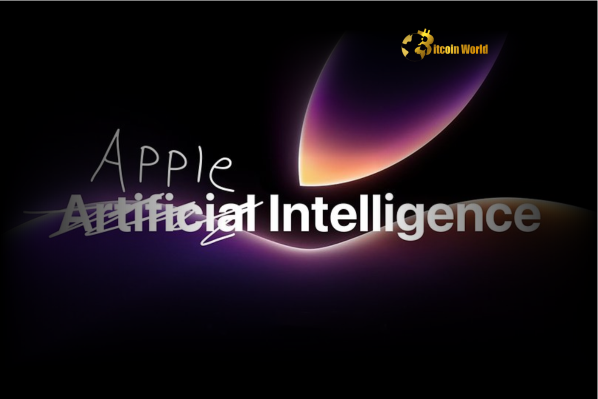BitcoinWorld

Scale AI Faces Partnership Shakeup as Google AI Plans Cut
In the fast-evolving landscape where major tech players intersect with cutting-edge AI development, news of shifting alliances can significantly impact the market. Recent reports suggest a notable change involving Scale AI, a key player in data annotation services critical for training advanced AI models, particularly in the realm of Generative AI. This development is drawing attention across the tech world, including those observing the broader implications for digital infrastructure and investments.
Why is Google AI Reportedly Cutting Ties with Scale AI?
Reports indicate that Google is planning to significantly reduce or potentially cut its business relationship with Scale AI. This move comes amidst a period of intense competition and strategic maneuvering among tech giants in the artificial intelligence space. According to sources, Google had anticipated spending around $200 million with Scale AI this year, suggesting a substantial existing relationship. However, internal conversations are now reportedly focused on shifting this business to Scale AI’s competitors.
The primary catalyst for this potential separation appears to be Meta’s reported substantial investment in Scale AI. While the exact details of Meta’s investment vary in early reports, one suggests a massive $14.3 billion investment for a 49% stake, with Scale AI CEO Alexandr Wang also reportedly taking a leadership role at Meta focused on ‘superintelligence’ development. Such a deep integration with a direct competitor like Meta could raise concerns for other major tech clients regarding data security, competitive advantages, and strategic alignment.
How Are Other Tech Giants Responding to the Scale AI Situation?
It’s not just Google re-evaluating its relationship with Scale AI. Other major tech companies are also reportedly considering their positions:
- Microsoft: Similar to Google, Microsoft is reportedly looking at pulling back its business with Scale AI.
- OpenAI: Reports suggest OpenAI made a similar decision months prior. However, a spokesperson for OpenAI mentioned that the company continues to work with Scale AI as one of its many vendors, indicating a potentially more nuanced or reduced engagement rather than a complete halt.
These reported actions from multiple large AI developers underscore the sensitivity surrounding strategic partnerships and potential conflicts of interest in the highly competitive AI development environment. For companies heavily reliant on external data annotation services, ensuring neutrality and data safeguarding from vendors is paramount.
Understanding Scale AI’s Business and Its Generative AI Focus
Scale AI is known for providing high-quality data annotation services. This involves labeling, categorizing, and structuring vast amounts of data, which is a crucial step in training machine learning models. While Scale AI serves various industries, including self-driving cars and government projects, Reuters highlights that its largest clients are companies developing Generative AI models. These models require massive, meticulously labeled datasets to learn how to create text, images, code, and other forms of content.
The need for specialized workers with specific domain knowledge to accurately annotate complex data makes Scale AI’s services valuable. The potential loss of major clients like Google and Microsoft could significantly impact Scale AI’s revenue streams, although the company’s spokesperson maintained that their business remains strong and they will continue to operate as an independent entity that safeguards customer data.
What Do These Changing AI Partnerships Mean for the Industry?
The reported shifts in relationships between major tech firms and Scale AI highlight the dynamic nature of AI partnerships. As companies like Google, Meta, Microsoft, and OpenAI race to build more advanced AI capabilities, the role of data infrastructure providers and annotators becomes critical.
Key takeaways from this situation include:
- Strategic Alignment: Deep investments by one tech giant in a key vendor used by competitors can trigger re-evaluation of those vendor relationships.
- Data Privacy and Security: Concerns about data access, competitive intelligence, and security become more pronounced when a vendor is closely tied to a direct competitor.
- Market Competition: This could lead to increased competition among data annotation providers as companies seek alternative vendors, or encourage larger tech firms to build more in-house data labeling capabilities.
- Impact on Scale AI: While Scale AI asserts its independence and data security, losing major clients would necessitate adapting its business strategy, potentially leaning more heavily into its relationship with Meta while assuring other clients of its neutrality.
The situation underscores the complexities of collaboration and competition in the AI race, where even essential service providers like Scale AI can become entangled in the strategic moves of their largest clients.
Conclusion: Navigating the Evolving AI Landscape
The reported plans by Google AI and others to potentially scale back their business with Scale AI, seemingly triggered by Meta’s significant investment, signal a period of adjustment in key AI partnerships. This development highlights the strategic importance of data annotation for Generative AI and the potential challenges faced by vendors caught between competing tech giants. While Scale AI maintains its business strength and commitment to data security, the coming months will reveal how these shifting alliances reshape the market for AI training data and related services.
To learn more about the latest AI market trends, explore our article on key developments shaping AI features.
This post Scale AI Faces Partnership Shakeup as Google AI Plans Cut first appeared on BitcoinWorld and is written by Editorial Team





